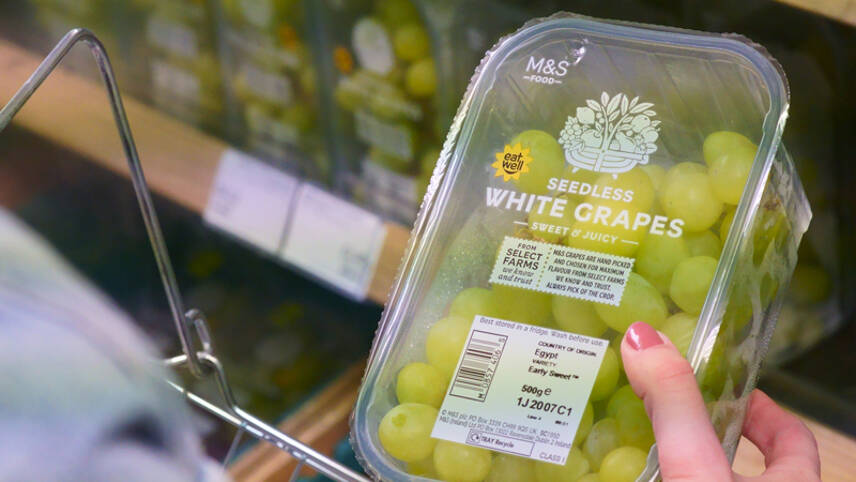Register for free and continue reading
Join our growing army of changemakers and get unlimited access to our premium content

Image: M&S
The change will come into effect this week, covering 85% of M&S’s fresh produce lines and set to be implemented in all stores.
While ‘use by’ dates are applied to foods as a ‘deadline’, when a food presents a high food poisoning risk after a certain amount of time, ‘best before’ dates are guidelines for when to eat foods. Research from WRAP has repeatedly shown high levels of consumer confusion around these terms, which are commonly conflated or mixed up.
By removing best before dates, M&S hopes to discourage customers from throwing away produce which is still good to eat. It bears noting that the vast majority of the UK’s food waste mountain is generated at the consumer level. WRAP estimates that 9.5 million tonnes of food was wasted in the UK in 2018, with 70% wasted in homes.
To ensure that store staff are still able to check the lifetime of the products and discount and remove products from shelves accordingly, a new code will be added to packaging, which can be scanned by M&S employees but not by customers. Trials of this approach were first implemented by M&S in 2019 and extended earlier this year, with successful outcomes.
M&S’s director of food technology Andrew Clappen said that the business needs to be “innovative and ambitious” to reach its 2030 target of halving food waste across the entire value chain – and that this encompasses “removing best before dates where safe to do so, trialling new ways to sell our products and galvanising our customers to get creative with leftovers and embrace change”.
To Clappen’s point on leftovers, the supermarket runs a ‘Sparking Change’ challenge nationally, providing customers with recipes incorporating leftover ingredients and fruit and vegetables approaching the end of the timeframe in which they’re good to eat. Customers are also provided tips on storing food to make it last longer and on batch cooking and freezing meals.
Growing awareness
A report published last month by Capgemini revealed that consumer consciousness around food waste has more than doubled in the UK since 2019. While rising food prices are the main driver of awareness at present, supply chain issues cause by lockdown also focused minds – as did campaigns around the environmental impacts of food waste.
Capgemini’s survey found that 62% of British customers want retailers to do more to tackle food waste, with 90% saying they would prefer to buy from businesses that are taking action on food waste. As well as redistributing food, shoppers want to see clear date labels, packaging that protects food and innovative products.


And high time too.
As a ninety year-old, I seem to recall that the food system ran pretty well before the present welter of “guidance”. Certainly there was not anything like the variety of foodstuffs, but “Mum” had good idea of what was OK and what was OFF!
I expect that the modern “Mum” is little different at heart.
Richard Phillips